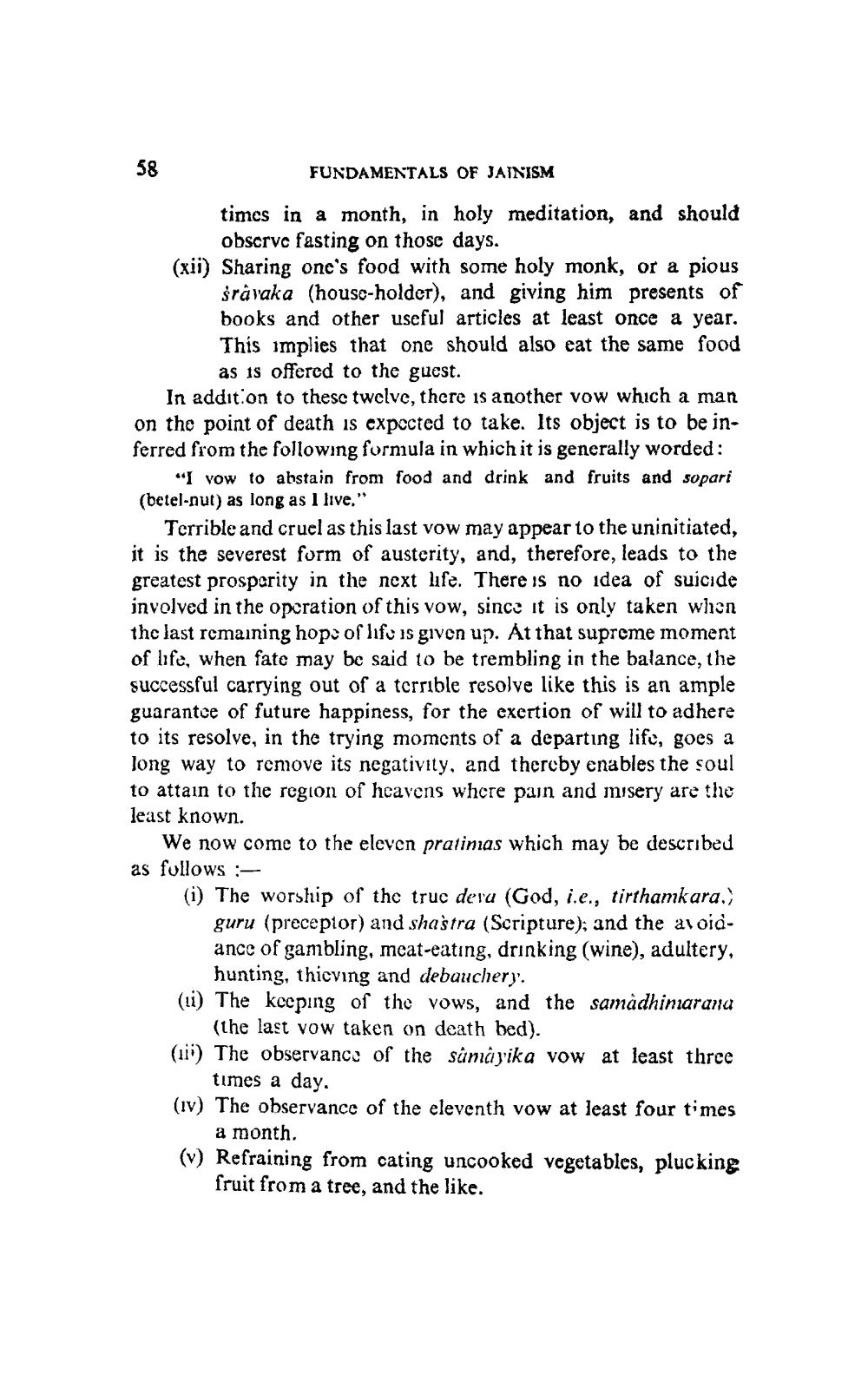________________
58
FUNDAMENTALS OF JAINISM
times in a month, in holy meditation, and should
obscrvc fasting on those days. (xii) Sharing one's food with some holy monk, or a pious
śrâvaka (house-holder), and giving him presents of books and other useful articles at least once a year. This implies that one should also eat the same food
as is offered to the guest. In addition to these twelve, there is another vow which a man on the point of death is expected to take. Its object is to be inferred from the following formula in which it is generally worded:
"I vow to abstain from food and drink and fruits and sopari (betel-nut) as long as I live."
Terrible and cruel as this last vow may appear to the uninitiated, it is the severest form of austerity, and, therefore, leads to the greatest prosperity in the next life. There is no idea of suicide involved in the operation of this vow, since it is only taken when the last remaining hopo of life is given up. At that supreme moment of life, when fate may be said to be trembling in the balance, the successful carrying out of a terrible resolve like this is an ample guarantee of future happiness, for the exertion of will to adhere to its resolve, in the trying moments of a departing life, goes a long way to remove its negativity, and thereby enables the soul to attain to the region of heavens where pain and misery are the least known.
We now come to the eleven pratinas which may be described as follows :
(i) The worship of the truc deru (God, i.e., tirthamkara.)
guru (preceptor) and shastra (Scripture); and the avoidance of gambling, meat-eating, drinking (wine), adultery,
hunting, thicving and debauchery'. (ii) The keeping of the vows, and the samadhiniarana
(the last vow taken on death bed). (111) The observance of the sûma yika vow at least three
times a day. (iv) The observance of the eleventh vow at least four times
a month. (v) Refraining from cating uncooked vegetables, plucking
fruit from a tree, and the like.




